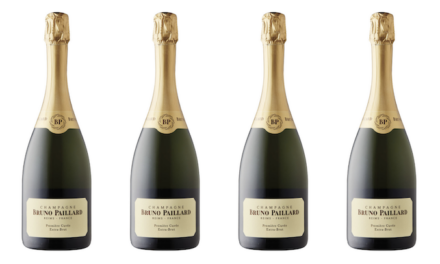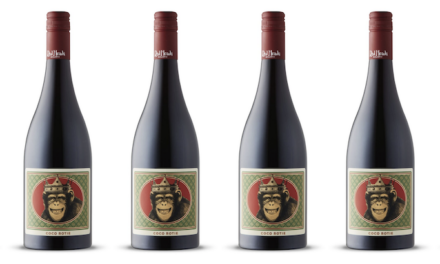 Here’s a secret held among wine writers: when we huddle around a tasting table in some cellar, and the winemaker steps out of the room, we often whisper to each other that we much prefer the basic (cheaper) wine to the more expensive ‘Reserve’ one we’ve just tasted. This is not merely a reflection of reverse snobbism, but mostly to do with the fine art of making wine in wood barrels. Winemakers who are very good at it, and are willing to spend the time and money to be that way, like Prince Edward County’s Norm Hardie will strive to make wines where “you don’t taste the oak, but you know that it is there” (to mangle his words). When you do know the oak is there, which often the case in red wines under $20, then it can be distracting and unbalance the wine. So, often the cheaper wines from a given producer actually taste better. And Nicholas Hammeken, a former wine industry executive from Denmark, has capitalized on that phenomenon with a Spanish red wine available at the LCBO for a very reasonable price of just $11.00.
Here’s a secret held among wine writers: when we huddle around a tasting table in some cellar, and the winemaker steps out of the room, we often whisper to each other that we much prefer the basic (cheaper) wine to the more expensive ‘Reserve’ one we’ve just tasted. This is not merely a reflection of reverse snobbism, but mostly to do with the fine art of making wine in wood barrels. Winemakers who are very good at it, and are willing to spend the time and money to be that way, like Prince Edward County’s Norm Hardie will strive to make wines where “you don’t taste the oak, but you know that it is there” (to mangle his words). When you do know the oak is there, which often the case in red wines under $20, then it can be distracting and unbalance the wine. So, often the cheaper wines from a given producer actually taste better. And Nicholas Hammeken, a former wine industry executive from Denmark, has capitalized on that phenomenon with a Spanish red wine available at the LCBO for a very reasonable price of just $11.00.
Hammeken’s winery Radio Boka doesn’t really exist, he explained to GFR when he was in town with winemaker Daniel Giminez this summer. It’s a virtual winery, which takes its residency in established Spanish wineries where they buy juice and rent space. What separates Radio Boka wines from the regular wines made at the host winery (in this case near Valencia) is the total absence of oak in the wine making process. This means the production costs are much cheaper, and so is the wine. It’s also a lot fresher, fruitier and ready to drink, especially with food.
“We wanted a statement of Spanish wine that was easy to drink, but not simple,” explained Giminez, and the 2012 Radio Boka Tempranillo seems to be very much in accord with those sentiments. It’s alive with good acidity, lots of fruit (cherry, blueberries) and a touch of spiciness. It’s vinified to 13% alcohol by volume, which is appreciatively restrained for a hot climate red For an $11 wine it punches far above its weight.
The 2012 Radio Boka Tempranillo is in the “general release” (i.e. main shelves) of the LCBO, so should be widely available. Click here to use the LCBO’s store search function to find a bottle near you.
 Malcolm Jolley is a founding editor of Good Food Revolution and Executive Director of Good Food Media, the company that publishes it. Follow him on Twitter or Facebook.
Malcolm Jolley is a founding editor of Good Food Revolution and Executive Director of Good Food Media, the company that publishes it. Follow him on Twitter or Facebook.









I am interested in the history behind this product. My last name is Boka which isn’t remarkable but it is fairly rare. My father lost contact with his family during the Russian revolution around 1954 in Hungary. I am wondering if there is any connection between the name and Hungary.